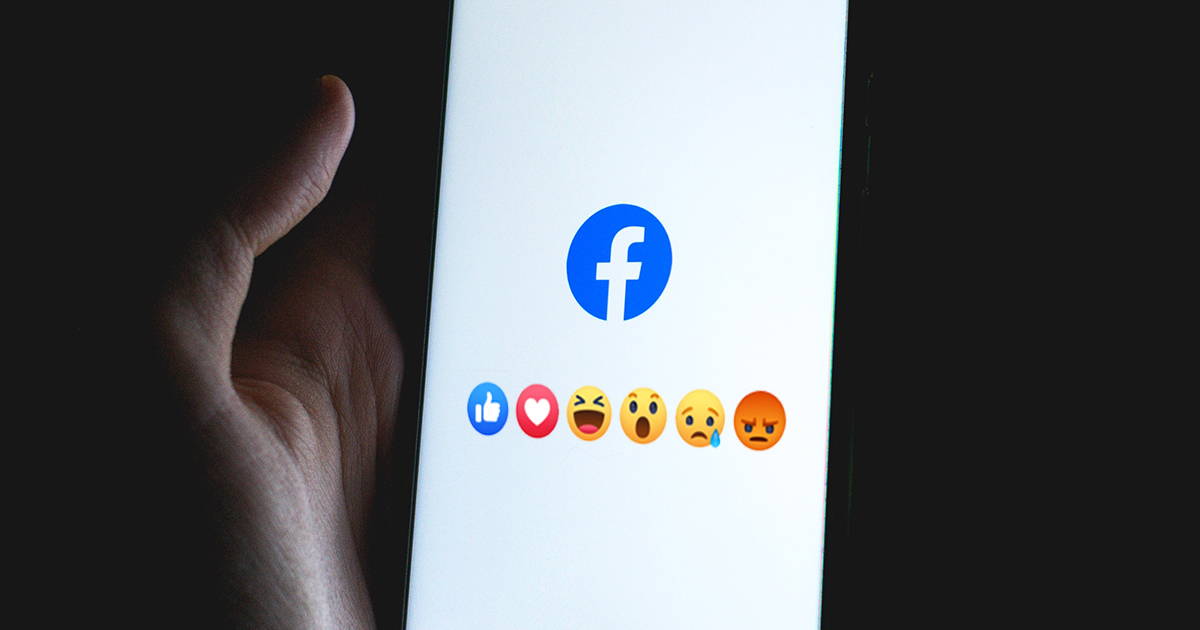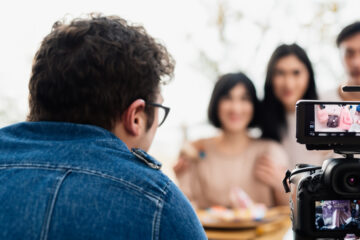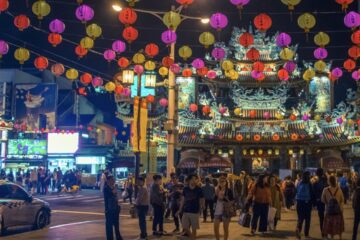Hello, I’m Leo Sato (@slamdunk772), the CEO of applemint, a digital marketing agency in Taiwan!
Facebook is the key to success in digital marketing in Taiwan! It’s very important to manage your fan page and your advertising efforts.
Once, one of my clients asked me for advice.
They said, “Recently, I’ve been having a problem with people who react with “angry emoji ? ” to all my posts. It’s probably an anonymous customer who had an unpleasant experience with our client’s product in the past reacting to post with “? “.
It’s true that an unwanted “Angry” rating on a post is visually noticeable, and you may be worried that it may give a bad impression to other followers.
However! Did you know that this is actually better than simply getting a “like” in terms of the Facebook algorithm? If the post itself is good, it can increase the probability of more exposure, increase the ranking of the post, and increase the ad rate, which can ultimately help you save ads cost.
So why is “angry emoji ? ” a positive thing?
If you understand Facebook’s algorithm, you will be able to determine exactly what kind of content is demanded.
In the last section, we’ll show you some successful examples of influencer posts that take the algorithm into account.
Contents
Why “Like” < “Angry”?
The reaction button was introduced at the end of 2015 in response to user feedback that they wanted a “Dislike” button.
There are some life events for which “Like” is inappropriate. For example, you can’t “like” a friend’s post about the death of her dog.
So, in addition to “like,” there are five new reactions: “Love”, “Haha”, “Wow”, “Sad” and “Angry”.
As I mentioned at the beginning of this article, the “Angry” button is sometimes pressed on fan page posts and advertisements.
There are a variety of reasons for this, such as feeling uncomfortable because the product you purchased doesn’t suit you, or you are annoyed by the number of times an ad is displayed.
Don’t worry too much because it may be a good sign. Why? Facebook may judge the content as “valuable” because it had a deeper impact on the user.
Of course, it would be much better to get people to click “Love” or “Wow” instead of “Angry” but the important point is that it makes no difference to the system which emoji button they choose.
- Why is “Angry” actually good?
-
1. Facebook considers buttons other than “Like” to be more significant.
2. All actions other than “Like” is an emotional expression and it is perceived as giving deeper effect to the viewers.
For further understanding, I’d like to talk about the factors that affect the algorithm and other actions in the next chapter!
Five key points for algorithm

For Facebook, posts with more active interaction is perceived as a better content. A good post will have an impact on your timeline and rankings, and it will have a huge impact on the ads, increasing the exposure and lowering the cost per view.
So what exactly are the user behaviors that contribute to the algorithm?
Here is a list of five important ones.
1) Comments
Ideally, content should generate communication among users.
Therefore, questions to users, topics on which individuals have opinions, and timely events are recommended.
2) Reactions
Facebook evaluates how active the user is. In other words, the value of “Like” is the lowest among the reactions, and the other reactions have the same value and are eligible for points.
Like” < “Love” = “Haha” = “Wow” = “Sad” = “Angry”
3) Reply to comments
When users tag each other or interact with each other in the comment section, they get points. Facebook really values user interaction.
4) Sharing to individuals
Points are scored when a post is shared directly to a specific group or individual.
In Facebook’s view, sharing to a specific person encourages more user interaction than simply sharing to the timeline, so sharing to individuals is recommended.
If a friend likes a shared post, or if a conversation occurs in the comment section, points will be awarded. This is also a way to promote interaction among users.
- Actions we want users to take
-
(1) Reactions other than “Like”.
(2) Tagging friends in the comment section.
(3) Share the post to others.
(4) Conversation in the comment section
This means that you should create content that is likely to generate communication, reactions, and shares among users.
It’s important to note that even if there is a lot of interaction, if the content is not valuable, points may be deducted.
The following is a list of ineffective posts from the official Facebook announcement.
Ineffective posts that will get points off

There was a time when algorithm countermeasures were easy if you were a little sneaky!
However, Facebook is evolving at a very fast pace.
The following 5 examples of ineffective posts are subject to point deductions in the algorithm, which will reduce your chances of being displayed.
- vote-baiting
- reaction-baiting
- share-baiting
- tag-baiting
- comment-baiting
The above content is called “Engagement Bait” and is an example of a post whose sole purpose is to get the user to take an action.
So it’s in your brand’s best interest, and your users’ best interest, to provide valuable content with integrity!
So far, we have explained the points to be scored and points to be deducted respectively.
Lastly, I’d like to introduce you to our influencer measures that are specific to algorithms.
This is an example of an improvement that you can use right away, so please take advantage of it!
To begin with, influencer ad is quite an expense, isn’t it?
However, if you simply ask the influencer to post, it will only be viewed by his or her fans, and according to the algorithm, only about 5-6% of followers will see it.
Even an influencer with 10,000 fans can only reach about 600 people, so even celebrities with a large number of followers will want to use advertising to help spread the word.
Now, let’s take a look at a successful case study that increased the number of shares by 27 times!
First of all, please take a look at the following.
| under normal measures | with our strategy | growth rate | |
| Reactions | 80 | 2137 | +2571% |
| Comments | 10 | 196 | +1861% |
| Shares | 1~2 | 116 | +5700% |
As you can see, the growth rate is four digits, which is an extraordinary level, but what we actually did was to hold a lottery event, which Taiwanese people love
Incidentally, this influencer had only about 3,000 followers at first, but after a month, it had grown to nearly 10,000. It was a win-win situation for both the influencer and the advertiser.
What we focused on in the planning was to create a situation where users would start a chain of information diffusion. This chain of events includes tagging and sharing to individuals.
However, it would be meaningless to just call out to users, so we planned to maximize the scale of diffusion by launching a lottery event to motivate users.
The final condition for participation in the lottery event was to tag a friend or two and share the post. The first reason for this was to counter the algorithm, and the second was to spread awareness of the lottery event properly. (*As of October 2020, lotteries cannot be mentioned in posts anymore.)
As for the anti-algorithm, as explained above, we aim to interact through tagging, sharing, and commenting. In a post like the lottery campaign, anyone can feel free to comment on it as if it were a festival, and if tagged, there is a high probability of people thinking”What’s this? I want to be a part of this! I want to participate!”
The second thing we wanted to do was to spread the information accurately, so that the posts would not only reach the eyes of many people, but also make many people aware of the campaign. If a good friend tags you by name, you will at least take a look at it, right? We thought that tagging would help people to see the post properly.
- Changes and how to overcome them as of October 2020
-
- Changes…
No text mentioning lottery in ads - No posting texts that directly encourages users to comment or share
-
Countermeasures:
It is possible to pass the ad review by announcing “Lottery event is underway” in the comment section.
- Changes…
Conclusion
In this blog, I introduced some examples of user behaviors and ineffective posts that can be scored in Facebook posts and ads.
The last post about lottery event, which increased the number of shares by 27 times, is no longer legal as of October 2020…. However, as you can see in the new countermeasure at the end of this article, applemint is constantly researching ways to counter algorithm and rule changes.
We offer free consultations on advertising management, influencer recruitment, and SNS marketing. If you have any questions, please feel free to contact us here!
Click to contact applemint.




